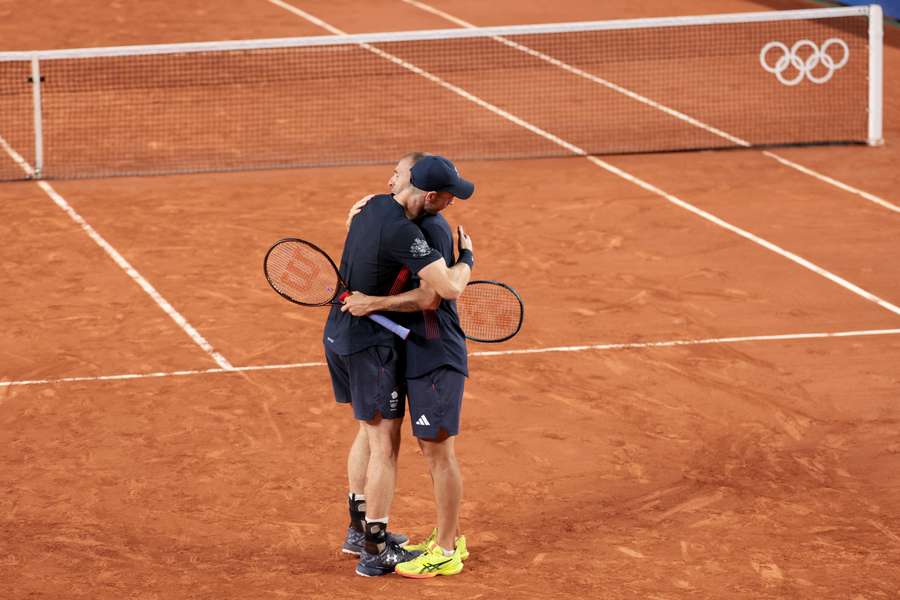Andy Murray career ends after Olympic doubles defeat to Tommy Paul and Taylor Fritz

The Scot, regarded as one of Britain's greatest sportsmen after twice winning Wimbledon and reaching world number one, announced before the Games that he would retire once it was over.
After withdrawing from the singles he and Evans won two rounds of the doubles, saving multiple match points in each, raising hopes of a golden final chapter to his career.
They saved another match point against the Americans at Court Suzanne-Lenglen on Thursday but the story ended as Fritz and Paul ran out winners to deny Murray the chance of a fourth Olympic medal.
He won singles in 2012 and 2016 and also claimed a mixed doubles silver medal in 2012.
Murray was given a standing ovation at the end as he saluted the crown on Court Suzanne Lenglen with Fritz and Paul joining in. Evans was clearly emotional and Murray had tears in his eyes as he walked off court after his last career match.
"Andy is the greatest tennis player ever to come from this country and a giant of British sport," LTA chief executive Scott Lloyd said in a statement. "His contribution to the game is immense and has bought us all so many moments of pride."
Over the past two decades, Murray has been the figurehead of British tennis and for several years was part of the game's Big Four with Roger Federer, Rafa Nadal and Novak Djokovic.
His first breakthrough came when beating Federer to win the Olympic title in 2012, weeks after losing to the Swiss in the Wimbledon final. Later that year he won the U.S. Open.
In 2013 he ended Britain's 77-year wait for a Wimbledon men's singles champion by beating Djokovic - a match that was watched by 17.3 million viewers on British TV.
Three years later, he won a second Wimbledon crown and ended the year ranked world number one.
He also led Britain to the Davis Cup title in 2015 and is the only player, man or woman, to win Olympics singles titles at consecutive Games.
"I have only praise for him, an incredible competitor and one of the greatest warriors the game has ever seen," Djokovic told reporters after he reached the singles semi-finals. "His fighting spirits will inspire people for generations to come."
As injuries began to take their toll, Murray needed a career-saving hip resurfacing operation in 2019.
Despite struggling to reach his former heights, Murray's resilience has shone through despite only managing to add one ATP title to the 45 he earned before his injuries.
